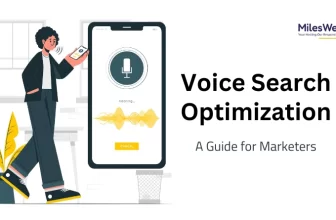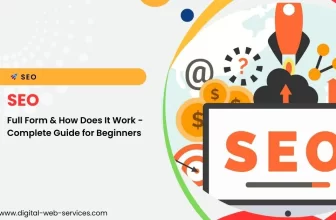
The internet is an amazing thing! It connects people from all over the globe with just a few clicks and swipes.
Over the past decade, the internet has changed so many things about the way we do things. Business, communication, education, and many more have greatly evolved thanks to this virtual connection.
Today, if your business can’t be found on the internet, then you are limiting its potential! You have to have a website, or at least a social media profile or email marketing campaign in order to grow.
Setting up a website is a good way to get more attention to your business. You can explain so much about what you do and what you can offer to so many people without having to speak to them one-by-one. Aesthetics and content both play an important role in conversion, but do you know another factor that is vital to getting more customers? – Speed!, Here you can also do a free SEO audit of your website for analysis by using SEMrush Coupon from the latest active offers.
Check your site health in 5 minutes with SEMrush SEO Audit Tool
That’s right, speed! The slower your website is the more customers you lose! People just don’t have enough patience to wait for your site to load. We are all so easily distracted these days. So if your website takes more than three seconds to show itself – expect that your prospect has moved on elsewhere.
So how do you make sure your website is up to speed? Here are a few tips!
Tone down on the HTTP requests
Several elements of a page such as stylesheets, images, and scripts require an HTTP request. The more of these things you have, the longer your page is going to take its time to load. It’s therefore a good idea to keep these things to a minimum.
But before you can lessen your HTTP requests, you must first figure out how much you are currently making and then work from there. The Google Chrome Developer Tools can help you work on this task.
Use GZIP compression
What happens when you try to send an email with a big attachment? It either takes time to attach or will be too big to send, right? So what options do you have when sending huge files? You can zip it or share it through a third party cloud storage.
The first option allows you to send the file quickly using just minimal bytes and yet the recipient would still be able to get all the data you sent. This same principle can work with websites.
You can use GZIP – a file compression software – to reduce file sizes of CSS, JavaScript, and HTML files that are over 150 bytes.
This technique is a great way to minimize space eaten by text files, but better not to use this for images if you want your website to show quality pictures.
Optimize your images
Now, of course, you want less HTTP requests and more compressed files, but that doesn’t mean you have to sacrifice the quality of your visuals. Overall look is still a valuable factor in enticing website visitors and converting them to customers.
Just make sure your image sizes aren’t bigger than they need to be. For one thing, figure out the right format for the type of image you need. Should it be in PNG, JPEG, or GIF? Learn to use CSS sprites, as well, to make templates for frequently used images such as icons or logos.
Pick a reliable web hosting service
Choosing a reliable web host is one of the most important steps in speeding up your website.
Whenever you browse a website, you are basically loading contents and accessing files from a remote computer. So imagine using your own computer without the internet. If your desktop or laptop is fast then programs should run smoothly and quickly. But if your device is old and slow, chances are it’s going to take a while to just open up programs.
The same is true for web hosts. Inefficient web hosts can slow down your website visitors’ browsing experience. If you get impatient waiting for a slow computer to run programs you want to use, expect that your website visitors are twice as impatient in dealing with a slow loading page. And people on the internet have the option to just switch to another faster website!
Reduce your plugins
There are loads of free plugins available and so it’s tempting to practically collect them – we get it! However, you should consider the fact that plugins take resources to run, and the more resources you need, the slower your page will load.
If your page is loading less quickly than desired, try to review all the plugins you are using. Look at the list of all plugins and determine which ones you are not using or are not exactly very beneficial to your page. Get rid of all that’s unnecessary and check if your site is finally up to speed.
If you still think you can improve your loading speed then run a check on all remaining plugins. Disable them one by one and run a test speed as you do so. If speed significantly increases when you disable a specific plugin, decide again whether you really need it or not. If not, then chuck it out too.
Allow browser caching
Have you noticed how when you visit some websites frequently they appear almost instantly? Chances are those pages that allow browser caching. Caching allows the users’ browsers to copy your page’s information, such as images, JavaScript files, stylesheets, and others.
And how would this benefit you, you ask? Well, instead of having to reload your page each time a viewer goes to visit, the browser would just pull out the information it already copied the last time the user visited your website.
This means a faster page-viewing experience and a more satisfied web visitor.
Don’t be content with just having a website – having one without any visitors is pretty useless, and not to mention, costly!
So check up on your website from time to time. Are the design and words up to date? Is it attracting the right customers?
And don’t forget to check its speed! A slow site will just get its viewers leaving!
Digital Web Services (DWS) is a leading IT company specializing in Software Development, Web Application Development, Website Designing, and Digital Marketing. Here are providing all kinds of services and solutions for the digital transformation of any business and website.










